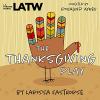Joy Harjo, born on May 9, 1951, in Tulsa, Oklahoma, stands as an influential figure in American literature, renowned for her contributions as a poet, musician, and author. As a member of the Muscogee (Creek) Nation, Harjo's works often weave indigenous traditions, mythologies, and histories with contemporary themes, offering profound insights into the complexities of Native American identities, histories, and spiritualities in the modern world. In 2019, Joy Harjo's significant contributions to American literature were recognized on a national level when she was appointed the 23rd U.S. Poet Laureate, making her the first Native American to hold this esteemed position.







